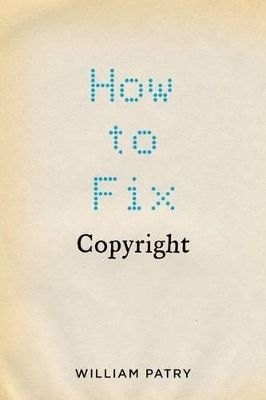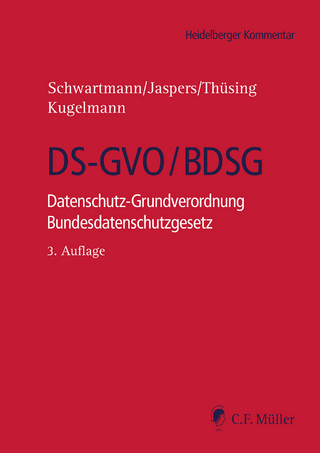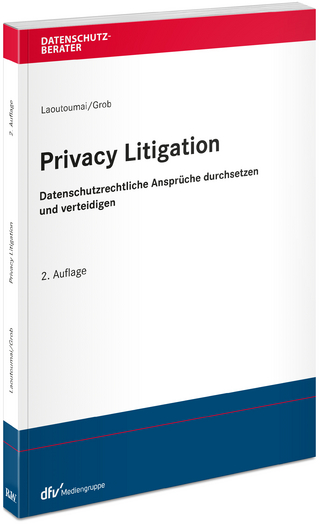
How to Fix Copyright
Seiten
2012
Oxford University Press Inc (Verlag)
978-0-19-976009-1 (ISBN)
Oxford University Press Inc (Verlag)
978-0-19-976009-1 (ISBN)
Do copyright laws directly cause people to create works they otherwise wouldn't create? Do those laws directly put substantial amounts of money into authors' pockets? Does culture depend on copyright? Are copyright laws a key driver of competitiveness and of the knowledge economy? These are the key questions William Patry addresses in How to Fix Copyright.
The arrival of the Internet was revolutionary, and one of the most tumultuous developments that flowed from it--the upending of the relatively settled world of copyright law--has forced us to completely rethink how rights to a work are allocated and how delivery formats affect an originator's claims to the work. Most of the disputes swirling around novel Internet media delivery systems, from Napster to Youtube to the Google Book Project, derive from our views on what constitutes a proper understanding of copyright. Who has the right to a work, and to what extent should we protect a rights holder's ability to derive income from it? Is it right to make copyrighted works free of charge?
One of the central figures in this decade-plus long debate has been William Patry, who is now the lead copyright attorney for Google. In How to Fix Copyright, he offers a concise and pithy set of solutions for improving our increasingly outmoded copyright system. After outlining how we arrived at our current state of dysfunction, Patry offers a series of pragmatic fixes that steer a middle course between an overly expansive interpretation of copyright protection and abandoning it altogether. We have to accept that we cannot force people to buy copyrighted works, but at the same time, we have to enforce laws against counterfeiting. Most importantly, we have to look at the evidence--what furthers creativity yet does not deny protection to those who need it to create? We should also reject the increasingly strident (and, he argues, ill-informed) denunciations of delivery systems: Google Booksearch and DVRs are merely technologies, and are not the problem. Throughout, he stresses that we need to recognize that the consumer is king. Law can only solve legal problems, not business problems, and too often we use law to solve business problems. Practical yet prescriptive, How to Fix Copyright will reshape our understanding of what the real problems actually are and help us navigate through the increasingly complex dilemmas surrounding authorship and rights in our digital age.
The arrival of the Internet was revolutionary, and one of the most tumultuous developments that flowed from it--the upending of the relatively settled world of copyright law--has forced us to completely rethink how rights to a work are allocated and how delivery formats affect an originator's claims to the work. Most of the disputes swirling around novel Internet media delivery systems, from Napster to Youtube to the Google Book Project, derive from our views on what constitutes a proper understanding of copyright. Who has the right to a work, and to what extent should we protect a rights holder's ability to derive income from it? Is it right to make copyrighted works free of charge?
One of the central figures in this decade-plus long debate has been William Patry, who is now the lead copyright attorney for Google. In How to Fix Copyright, he offers a concise and pithy set of solutions for improving our increasingly outmoded copyright system. After outlining how we arrived at our current state of dysfunction, Patry offers a series of pragmatic fixes that steer a middle course between an overly expansive interpretation of copyright protection and abandoning it altogether. We have to accept that we cannot force people to buy copyrighted works, but at the same time, we have to enforce laws against counterfeiting. Most importantly, we have to look at the evidence--what furthers creativity yet does not deny protection to those who need it to create? We should also reject the increasingly strident (and, he argues, ill-informed) denunciations of delivery systems: Google Booksearch and DVRs are merely technologies, and are not the problem. Throughout, he stresses that we need to recognize that the consumer is king. Law can only solve legal problems, not business problems, and too often we use law to solve business problems. Practical yet prescriptive, How to Fix Copyright will reshape our understanding of what the real problems actually are and help us navigate through the increasingly complex dilemmas surrounding authorship and rights in our digital age.
William Patry is Senior Copyright Counsel at Google Inc.
TABLE OF CONTENTS; INTRODUCTION; CONCLUSION
| Verlagsort | New York |
|---|---|
| Sprache | englisch |
| Maße | 145 x 211 mm |
| Gewicht | 454 g |
| Themenwelt | Recht / Steuern ► EU / Internationales Recht |
| Recht / Steuern ► Privatrecht / Bürgerliches Recht ► IT-Recht | |
| Recht / Steuern ► Wirtschaftsrecht ► Urheberrecht | |
| ISBN-10 | 0-19-976009-8 / 0199760098 |
| ISBN-13 | 978-0-19-976009-1 / 9780199760091 |
| Zustand | Neuware |
| Haben Sie eine Frage zum Produkt? |
Mehr entdecken
aus dem Bereich
aus dem Bereich
Telekommunikations- und Multimediarecht
Buch | Softcover (2024)
dtv Verlagsgesellschaft
CHF 38,95
Datenschutz-Grundverordnung Bundesdatenschutzgesetz
Buch | Hardcover (2024)
C.F. Müller (Verlag)
CHF 279,95
datenschutzrechtliche Ansprüche durchsetzen und verteidigen
Buch | Softcover (2024)
Deutscher Fachverlag GmbH
CHF 124,60


